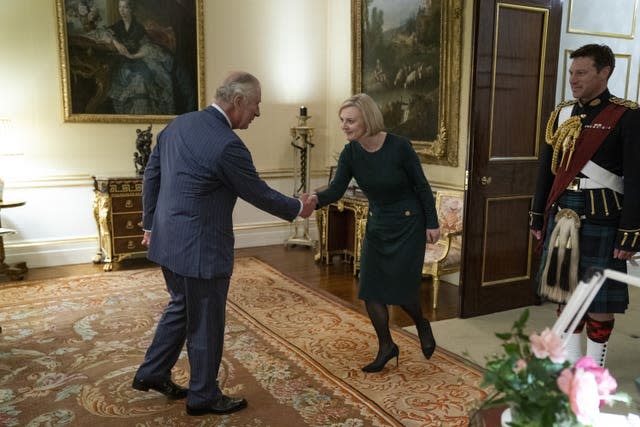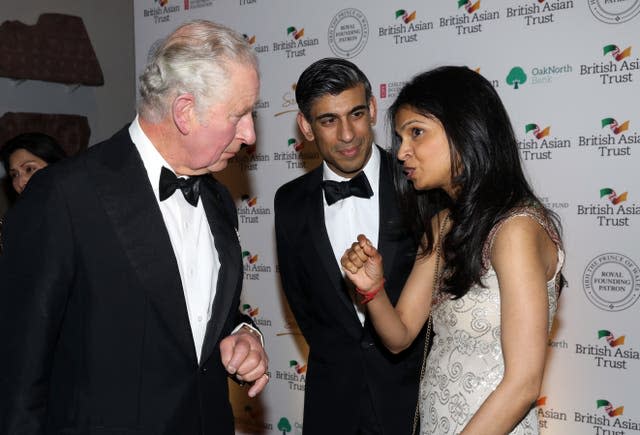King’s duty as head of state to appoint new prime minister
Rishi Sunak will be the second prime minister of the King’s reign, which is only just over six weeks old.
As head of state, it is Charles’s duty to appoint the head of His Majesty’s Government.
The Royal Encyclopaedia states that the appointment of a prime minister is “one of the few remaining personal prerogatives of the sovereign”.

The King will travel to London on Monday afternoon, as previously planned, from the private royal estate of Sandringham, it is understood.
But it appears unlikely he will host audiences at Buckingham Palace during Monday to accept the resignation of outgoing Prime Minister Liz Truss and appoint her successor, Mr Sunak.
The monarch does not act on advice nor need to consult anyone before calling upon a politician to form a government.
But the overriding requirement is to appoint someone who can command the confidence of the House of Commons – which usually means the leader of the party with an overall majority of seats in the Commons.
During the Buckingham Palace audience, expected in the next few days, the monarch – as is his constitutional duty – will offer Mr Sunak the opportunity to form a new government and become premier of the UK.

After the new leader of the country has been appointed, the Court Circular will record that “the Prime Minister kissed hands on appointment”.
This is not literally the case, and it is usually a handshake.
Before seeing the new premier, the King will hold an audience with Ms Truss, who will formally tender her resignation and is likely to be joined at the end of the meeting by her husband, Hugh O’Leary.
